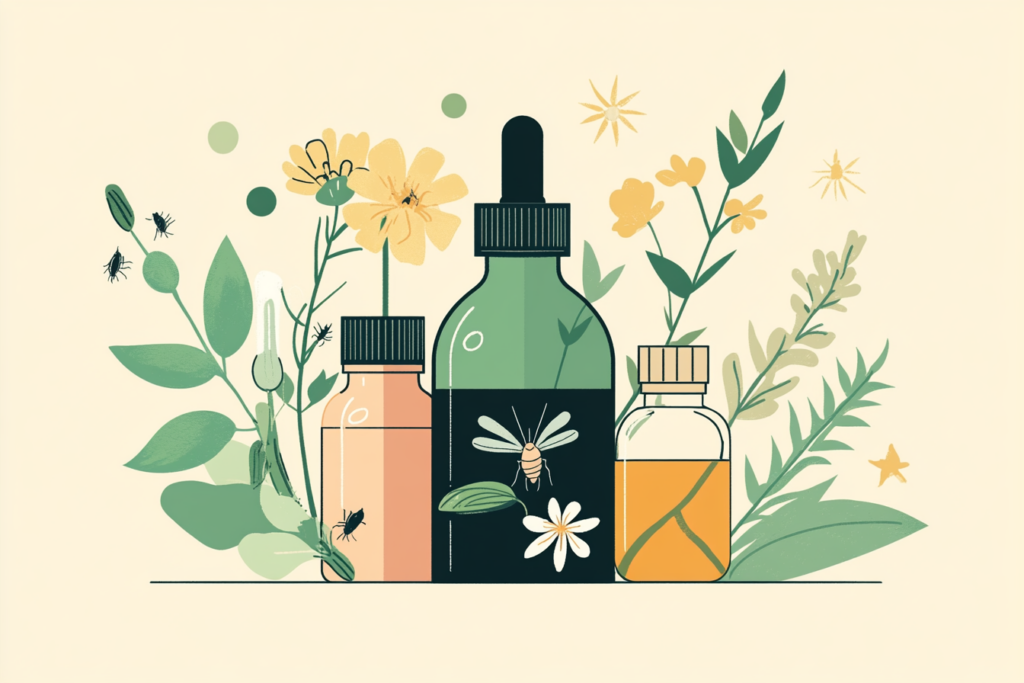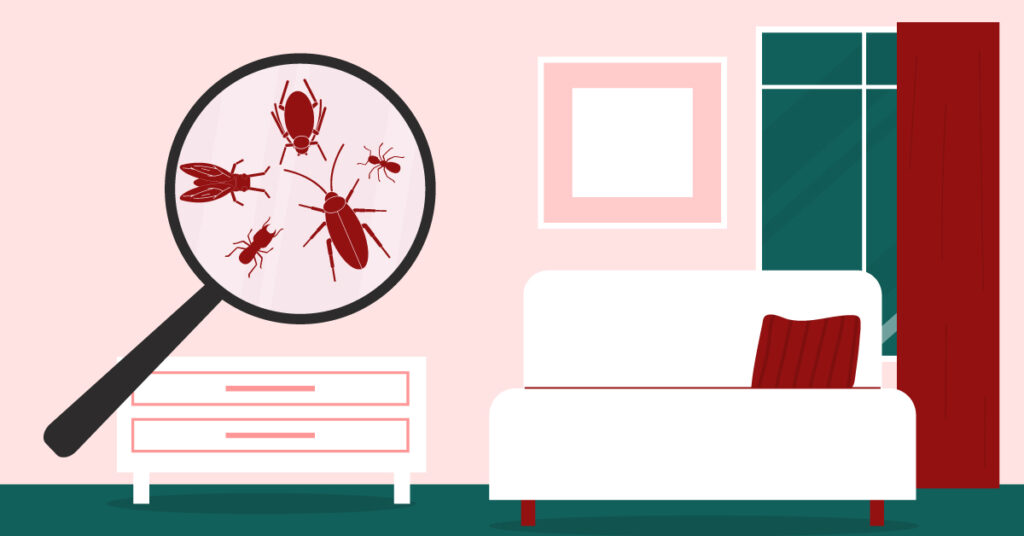Pest control is necessary for maintaining a clean and comfortable home, but many chemical solutions on the market can pose risks to human health, pets, and the environment. As more people look for natural, non-toxic alternatives, essential oils have emerged as an effective option for repelling various pests. These plant-based oils offer a safer and often more pleasant-smelling alternative to harsh chemicals.
Below, we’ll explore how to use essential oils for pest control, which oils are most effective against common pests, and how to create your own pest-repellent solutions at home.
Why Use Essential Oils for Pest Control?
Essential oils are a natural remedy used for many different things, and they are concentrated plant extracts offering aromatic properties and medicinal benefits. Many essential oils are made up of compounds that act as natural insecticides or repellents. Using essential oils for pest control has several advantages:
- Non-toxic: Unlike chemical pesticides, essential oils are generally safe to use around children, pets, and plants when used correctly.
- Eco-friendly: They are biodegradable and won’t contaminate soil, water, or wildlife.
- Multipurpose: Many offer additional benefits, such as pleasant scents and antimicrobial properties, making them useful for both pest control and overall household hygiene.
- Cost-effective: A small amount goes a long way, making it an affordable solution when diluted properly.
Common Essential Oils for Pest Control

Different essential oils work better against certain pests. Here’s a look at some of the most effective oils for targeting common household insects and critters:
1. Peppermint Oil
Peppermint oil is first on the list because it can be used for several different pest control remedies. Its strong scent repels a variety of pests, including ants, spiders, mosquitoes, and even mice.
- How to Use:
- Fill a spray bottle full of water and mix 10-15 drops and apply it around windows, doorways, and baseboards.
- Soak cotton balls in oil and place them in areas where you’ve seen pests, such as under the sink or in pantry corners.
- Targets: Ants, spiders, mosquitoes, mice
2. Lavender Oil
Lavender oil is well known for its calming scent, and found in several household candles, lotions and bath bombs, but it’s also highly effective at repelling insects like flies, mosquitoes, and moths.
- How to Use:
- Add 10 drops to a water spray bottle and mist around the home, especially where flies and mosquitoes are common.
- You can also add lavender oil to sachets and place them in closets and drawers to deter moths.
- Targets: Flies, mosquitoes, moths
3. Tea Tree Oil
Tea tree oil is common for hair and nail concerns on humans, because of its antifungal and antibacterial properties. This makes it a powerful solution for pest control. Its strong scent repels pests like ants, cockroaches, and dust mites.
- How to Use:
- Mix 15 drops with water in a spray bottle and apply it to cracks, crevices, and other pest entry points.
- You can also mop floors by adding a few drops to your cleaning solution to keep bugs at bay.
- Targets: Ants, cockroaches, dust mites
4. Eucalyptus Oil
Eucalyptus oil is one of the most soothly scents, in my opinion. Because of the strength of it, it’s also a potent mosquito repellent and is also effective against dust mites and fleas. Its strong scent makes it less appealing to insects, creating a natural barrier around your home.
- How to Use:
- Add 10-15 drops to a diffuser in outdoor seating areas to keep mosquitoes away.
- You can also opt for a spray bottle mixed with oil and water and apply it to bedding and carpets to target fleas and dust mites.
- Targets: Mosquitoes, fleas, dust mites
5. Lemon Eucalyptus Oil
The CDC has recognized lemon eucalyptus oil as an effective natural alternative to DEET, especially for repelling mosquitoes.
- How to Use:
- Combine 10-15 drops with a carrier oil (such as coconut oil) and apply it to any exposed skin before going outdoors.
- You can also mix it with water and spray around windows and doorways to prevent mosquitoes from entering.
- Targets: Mosquitoes, flies
6. Cedarwood Oil
Cedarwood oil is great for repelling pests like moths, fleas, and ants. Its earthy scent disrupts the pheromones insects use to navigate and communicate.
- How to Use:
- Add 10 drops of cedarwood oil to a water spray and apply it to areas where pests are commonly found, such as closets or pet bedding.
- You can also place cedarwood chips or blocks infused with cedar oil in drawers or closets to keep moths away.
- Targets: Moths, fleas, ants
7. Citronella Oil
Citronella oil is a well-known natural repellent, especially against mosquitoes. Its strong citrus scent ,you may remember from the tiki torch candles in backyards, covers up the human scents that attract mosquitoes, making it a great option for outdoor pest control.
- How to Use:
- Use citronella candles or tiki torches in outdoor areas to ward off mosquitoes.
- You can also mix citronella oil with water and spray it around the yard or garden to keep bugs at bay.
- Targets: Mosquitoes, flies
How to Make Essential Oil Pest Repellent Sprays
Creating your own essential oil pest control sprays is easy and allows you to customize solutions for specific pests. Here’s a basic recipe to get you started:
Ingredients:
- 10-15 drops of essential oil (depending on the type of pest you’re targeting)
- 1 cup of water or witch hazel
- 1 tablespoon of rubbing alcohol (optional, helps the oil mix with water)
- Spray bottle
Instructions:
- Combine the essential oil, water, and rubbing alcohol in the spray bottle.
- Shake well before each use.
- Spray the solution around windows, doorways, and other areas where pests are a problem.
You can mix different essential oils to create a blend that targets multiple pests at once. For example, a combination of peppermint, tea tree, and eucalyptus oils can help deter ants, cockroaches, and mosquitoes simultaneously.
Safety Tips for Using Essential Oils
While essential oils are generally safer than chemical pesticides, they should still be used with care. Here are some important safety tips to keep in mind:
- Dilution: Always dilute essential oils with water or a carrier oil (like coconut or almond oil) before applying them to surfaces, skin, or pets. Pure essential oils can cause irritation if applied directly.
- Pet Safety: Some essential oils, such as tea tree oil and peppermint oil, can be toxic to pets if ingested or applied in high concentrations. Keep oils out of reach of pets and avoid using them on your pet’s skin unless directed by a veterinarian.
- Skin Sensitivity: Test any essential oil mixture on a small patch of skin before applying it more broadly to ensure you don’t have an allergic reaction.
- Avoid Eye Contact: Keep essential oils away from your eyes, as they can cause irritation.
Embrace the Natural Remedy
Essential oils provide an effective, natural alternative to chemical pesticides, allowing you to manage pests in your home without harmful toxins. From peppermint to lavender, these oils can be used to target specific pests or create a broad-spectrum repellent. By making your own essential oil sprays, you can maintain a pest-free environment that’s safe for both your family and pets while enjoying the added benefits of pleasant aromas and a cleaner home.
By following these guidelines and safety tips, you can embrace essential oils as part of your pest control routine, creating a healthier and more eco-friendly living space.
You might also be interested in: Preventing Pests in the Kitchen: 9 Tips for Maintaining a Bug-Free Pantry




